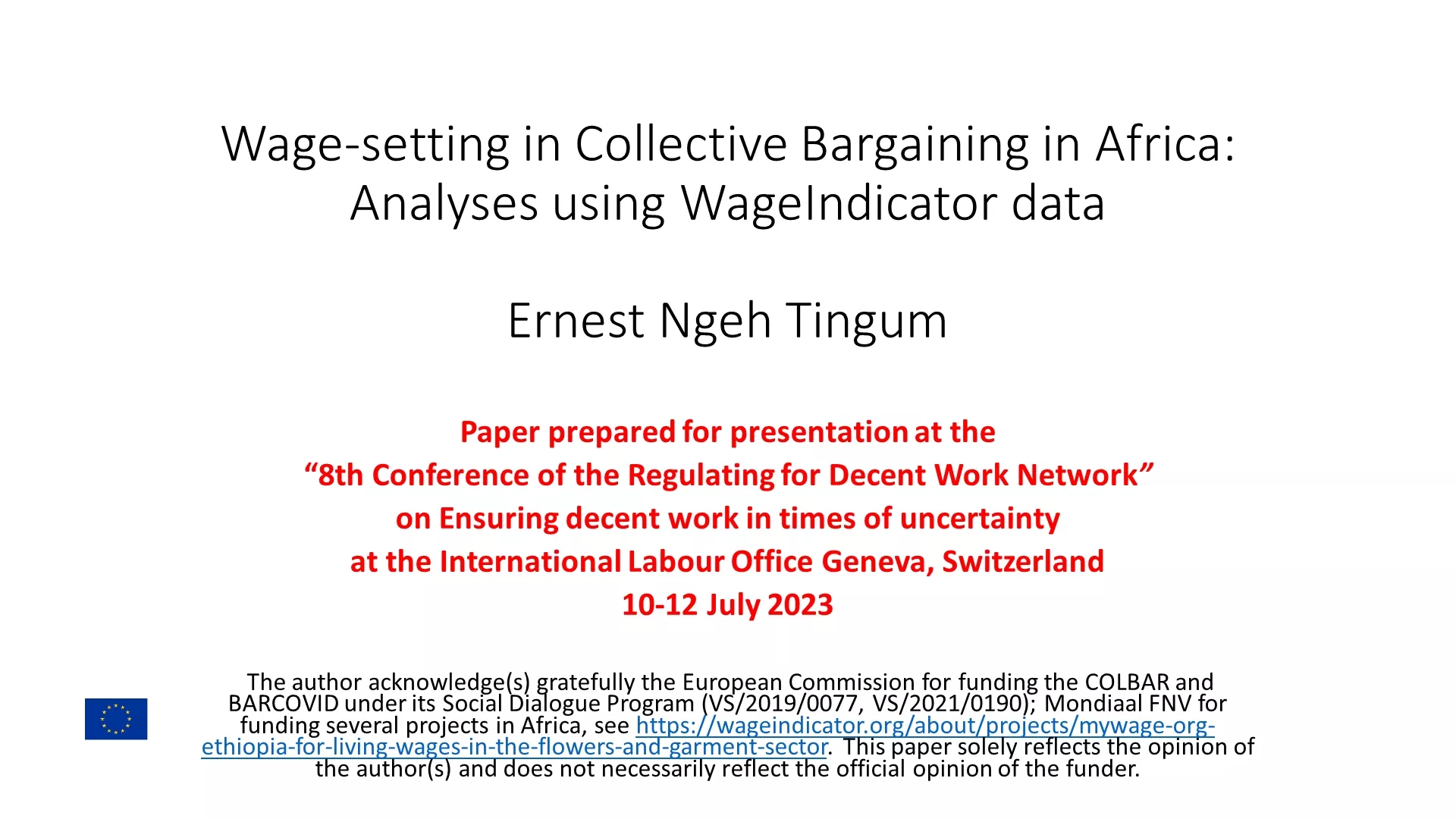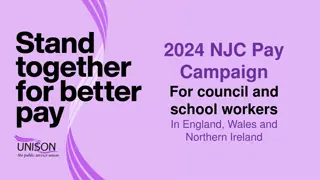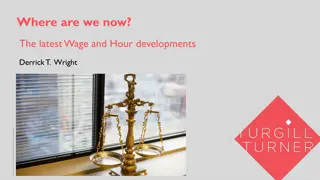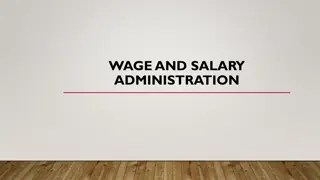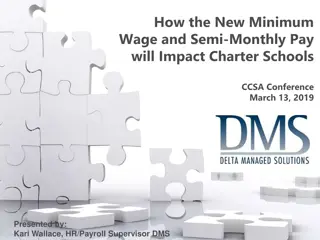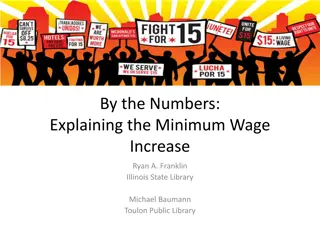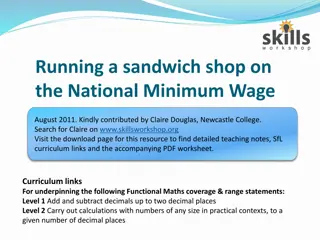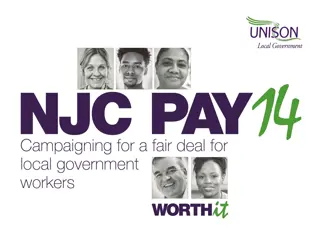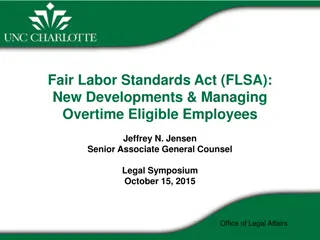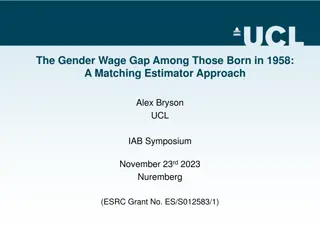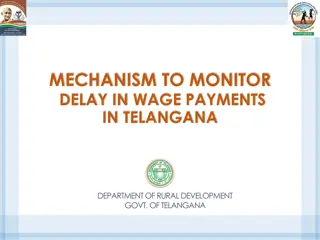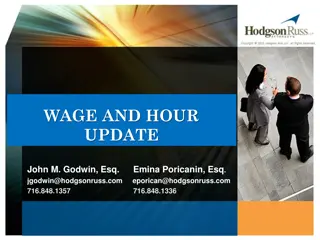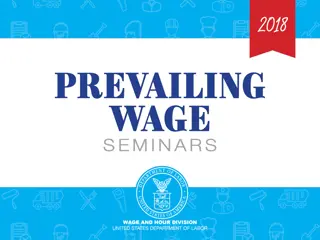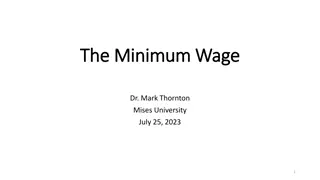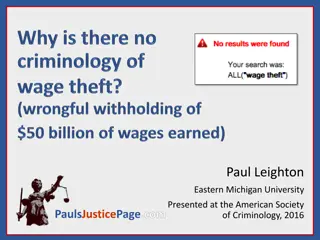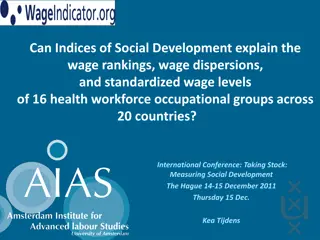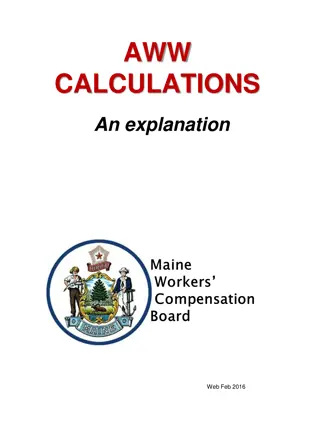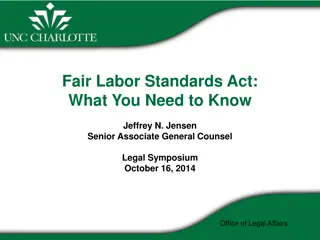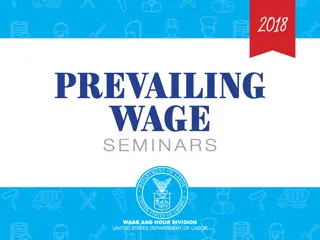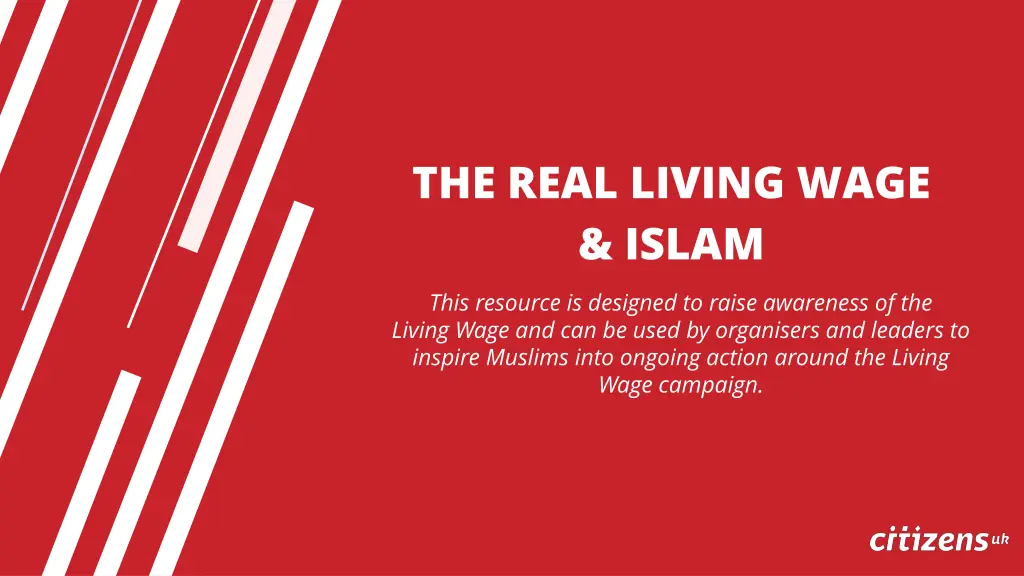
Real Living Wage in Islam: Addressing Poverty and Employment Disparities
This resource sheds light on the Real Living Wage campaign in the UK within an Islamic context, emphasizing the need to combat poverty and low employment rates among Muslims. It highlights the challenges faced by the Muslim community, such as over-representation in low-paid jobs and the impact of COVID-19. Additionally, the significance of work in Islam is examined to inspire action towards achieving economic justice and fair wages for all. Various responses, including charity initiatives, advocacy for a more generous benefits system, and promoting the Real Living Wage voluntarily by employers, are discussed to address these disparities.
Download Presentation

Please find below an Image/Link to download the presentation.
The content on the website is provided AS IS for your information and personal use only. It may not be sold, licensed, or shared on other websites without obtaining consent from the author. If you encounter any issues during the download, it is possible that the publisher has removed the file from their server.
You are allowed to download the files provided on this website for personal or commercial use, subject to the condition that they are used lawfully. All files are the property of their respective owners.
The content on the website is provided AS IS for your information and personal use only. It may not be sold, licensed, or shared on other websites without obtaining consent from the author.
E N D
Presentation Transcript
THE REAL LIVING WAGE & ISLAM This resource is designed to raise awareness of the Living Wage and can be used by organisers and leaders to inspire Muslims into ongoing action around the Living Wage campaign.
Poverty and Muslims in UK Muslims are over-represented in low paid jobs. Parliamentary Committee, Inquiry: Employment opportunities for Muslims in the UK, 25 January 2016: Of all religious groups, Muslims have the lowest employment rate at 47.2%, and the highest pay gap compared with those of no religion, earning 22.5% less.
Poverty and Muslims in UK Muslim Census: Financial Impact of COVID-19 on the Muslim Community, September 2020 found
Poverty and Muslims in UK Muslim Census: Financial Impact of COVID-19 on the Muslim Community, September 2020 found: 7% of Muslims feel they have become eligible to receive Zakat due to the pandemic In February 2021, the charity: National Zakat Foundation, said it distributed 3.8 million in grants, a 27% rise from the previous year when 2.9 million was given out. NZF gives out grants from Zakat, the obligatory religious levy collected from British Muslims for the poor.
Poverty and Muslims in UK: Responses 1. More charity: food banks and hardship grant donations. Demand has been rapidly rising & is seen as a sticking plaster response though an important emergency one. 2. Campaign for a more generous benefits system: getting rid of the benefit cap, increasing payment rates. Recent elections have shown this is not a vote winner. 3. More money advice and employment support to claim entitlements and secure better paid jobs. Cuts to legal aid and advice funding has made this very hard. 4. Persuade more employers to pay the real living wage voluntarily, so those in low paid jobs are guaranteed wages based on the cost of living increases. Cross-party support with almost 10,000 employers signed up.
The significance of work in Islam Al-Miqdam (RA) reported: The Messenger of Allah, peace and blessings be upon him, said: No meal eaten by one of you is better than the meal he eats from the work of his own hands. Verily, the Prophet of Allah, David, upon him be peace, would eat from the work of his own hands. [Source: a al-Bukh r 1966] It was narrated from 'Aishah (RA) that the Messenger of Allah, peace and blessings be upon him said: The best (most pure) food a man consumes is that which he has earned himself, and his child (and his child's wealth) is part of his earnings. [Source: Sunan Ibn Majah 2137, Book 12, Hadith 1]
Islam & a Living Wage Islam talks not only about a minimum but also a just or living wage. The Prophet Muhammad said that: an employee (male/female) is entitled to at least moderately good food and clothing and not being burdened except what he/she can bear [Sahih Muslim and Muwatta Malik] make them (workers) satisfied regarding their basic needs . [Majma Uz Zawaid] Those working under you are like your brothers whom God has made your subordinates. So, he who has his brother working under him let him feed what he feeds himself and clothe him what he clothes himself with . [Sahih al-Bukhari: 2545] Source: https://islamiclabourcode.org/wages/
What is the real Living Wage? The real Living Wage is the only UK wage rate that is voluntarily paid by over 11,000 UK businesses who believe their staff deserve a wage which meets everyday needs - like the weekly shop, or a surprise trip to the dentist. Since it s inception over 20 years ago, the campaign has shifted over 2bn into the pockets of the UK s lowest paid workers in the UK. With the cost-of-living crisis deepening, the Living Wage campaign is more important then ever.
Living Wage accredited Muslim employers Out of 11,000 living wage accredited employers in the UK, only 3 are Muslim organisations: 1. Muslim Council of Britain 2. Muslim Youth Helpline 3. Cheadle Mosque in Manchester
Question: Read Abdul Durrant s story HERE. If Muslims are overrepresented in low paid jobs, then the real living wage campaign must be the most significant response to rising in- work poverty in our community? Why isn t it? What could you do about it? Could you work towards your mosque becoming an accredited Living Wage employer? Could you find do some listening with people in your community to better understand how low-pay is affecting them?

